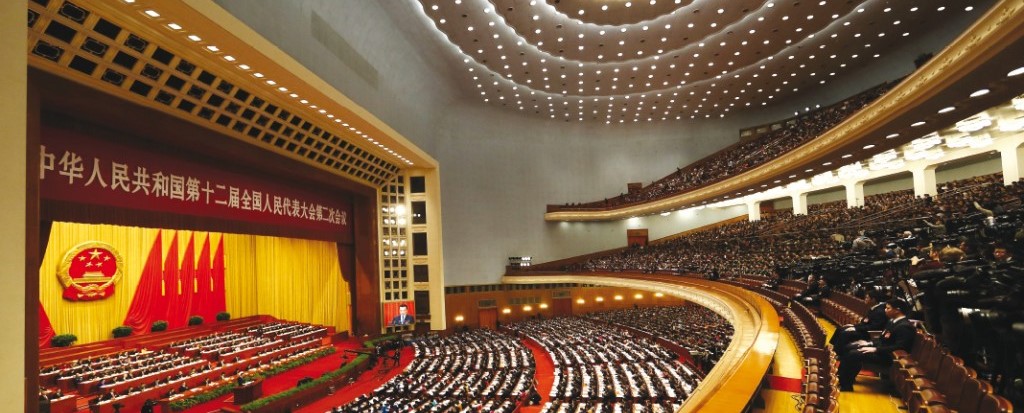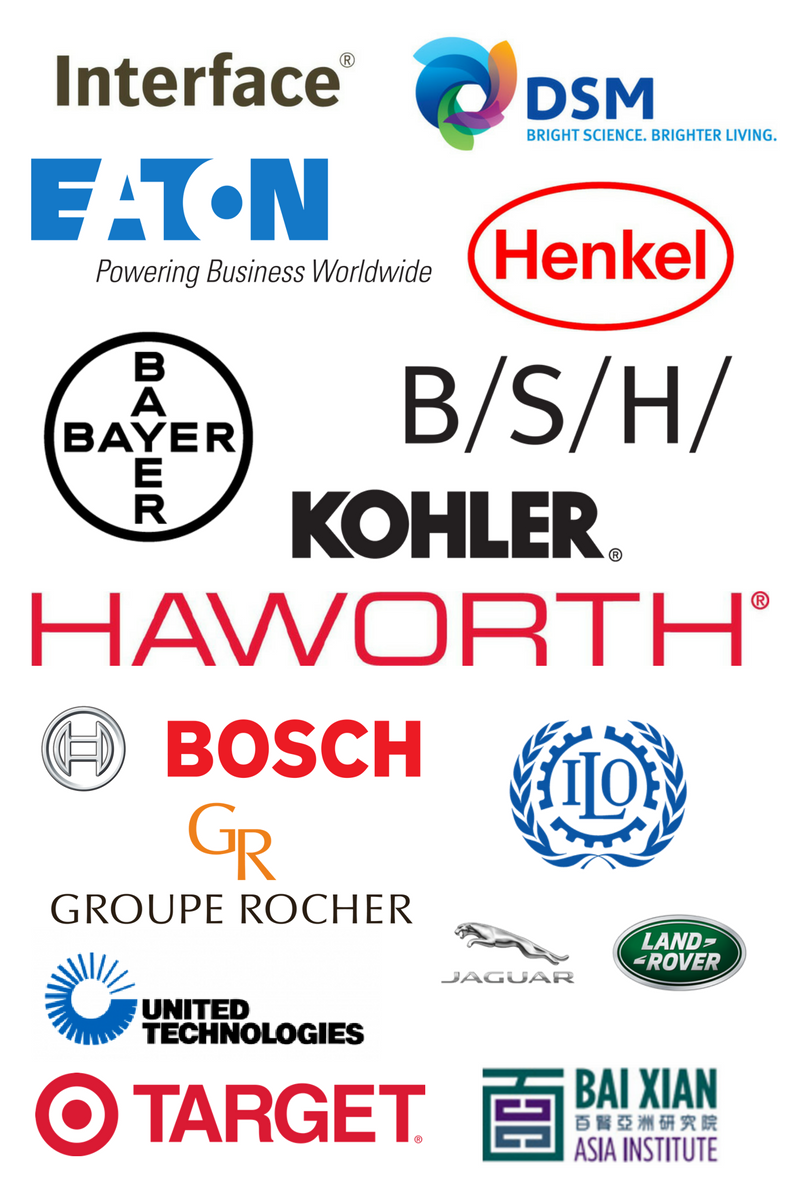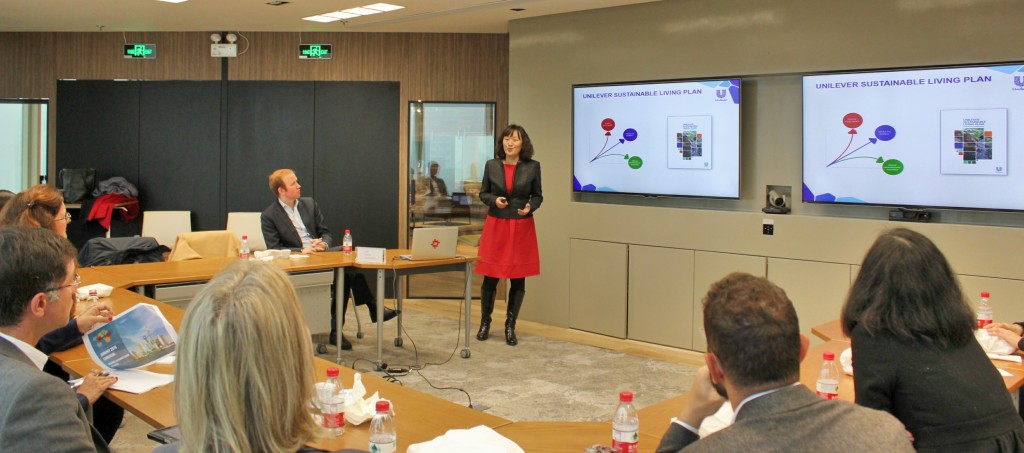2016 has been Collective’s busiest and most productive year to date. As we head into 2017 with a continued passion for action and change, we want to look back at the past year and share some of our favorite events, reports, and stories:
JANUARY
5 Ways to Become a Sustainability Ambassador
By Charlie Matthews
We kicked off 2016 with a Beyond Business as Usual Forum. Over 50 young professionals and students gathered to find out how they could transform personal interests into tangible skills and become future Sustainability Ambassadors.
Urban Mobility in China: Transporting China’s 1.3 Billion People
By The Collective
Through this post, we introduced developments in China’s major transport systems and explained constraints, challenges, and opportunities for growth. In particular, we focused on China’s automotive, high speed rail, air travel, and metro systems.
FEBRUARY
Event Insights: How Do You Build a Sustainability Ambassador Network?
By Charlie Matthews
Our BBAU Executive Luncheon series started with an informative piece about how firms can develop their own sustainability ambassador networks. We gave participants an insider perspective on how to engage employees and externally promote their sustainability work.
 Interface China Sustainability Fellowship Launched!
Interface China Sustainability Fellowship Launched!
By Charlie Matthews
In February, we launched a new sustainability fellowship with Interface, and our first fellow, Gloria Niu, joined the Collective team. Welcome, Gloria!
MARCH
 Sustainability and the Five Year Plan
Sustainability and the Five Year Plan
By Richard Brubaker
With the release of China’s 13th Five Year Plan, CR analyzed its impact on corporate leadership. We looked critically at potential sustainability challenges, as well as the actions that will be taken to address those challenges. In particular, we honed in on the new level of accountability for firms who break the law.
 Building CSR Programs with Impact and Engaging Stakeholders
Building CSR Programs with Impact and Engaging Stakeholders
By Richard Brubaker
In March, the Canadian Consulate General and Canadian Chamber of Commerce in Shanghai organized a CSR Roundtable Workshop. Collective participated, speaking about sustainability in China and leading a round table session called “Engaging Stakeholders through CSR in China”.
APRIL
 Event Insights: Scaling Sustainability Through Tech
Event Insights: Scaling Sustainability Through Tech
By William Morris
For our next Beyond Business As Usual Forum, Collective welcomed three problem solvers who spoke about the technologies they were funding, building, and scaling in order to meet pressing sustainability challenges.
 New Report: Energy in China
New Report: Energy in China
By Richard Brubaker
Our goal with this report was to provide “on the ground” sector insights into the Chinese economy, helping our readers identify opportunities around China’s urban challenges.
MAY
 Event Insight: How to Drive Sustainability via One-off Events?
Event Insight: How to Drive Sustainability via One-off Events?
By William Morris
While one-off events like Earth Day and annual company days of service offer great opportunities to engage employees and the outside community, many firms fail to leverage their full potential. With this in mind, April’s Beyond Business As Usual Executive Luncheon focused on how to drive long-term sustainable engagement through one-off events.
 Labor Displacement and Industry 4.0 in China
Labor Displacement and Industry 4.0 in China
By William Morris
Talk of robots replacing labor is everywhere, and a quick search brings up a host of articles claiming “our jobs are at risk” or “the robotic revolution is upon us”. In response, we at Collective started to conduct research into the future of labor in China, providing context on China’s robotics and automation.
JUNE
 Allergies in China: Bayer Workshop Unites Industry Leaders
Allergies in China: Bayer Workshop Unites Industry Leaders
By Charlie Matthews
Allergies are among the most common chronic conditions worldwide. Improving quality of life is always at the core of Bayer’s businesses, so in June, Bayer invited a select group of industry leaders to bring together diverse expertise and address these conditions. Participants from different fields gathered for an in-depth workshop to address current challenges faced by those with allergies in China.
 New Report: Hope & Opportunity – Exploring Shanghai’s Migrants
New Report: Hope & Opportunity – Exploring Shanghai’s Migrants
By William Morris
In this report, we explored the unique stories of Shanghai’s migrants. These migrants are individuals who come from a wide range of circumstances and regions, but all pursue a better life, as well as opportunities for their families.
JULY Event Insights: “The Future of Labor”
Event Insights: “The Future of Labor”
By The Collective
As many consider the end of low-cost manufacturing, we invited speakers from Unilever and Li & Fung to provide practical insights on the future of labor at our July Beyond Business As Usual Luncheon.
 Getting It Right: IKEA and the Power of Consumer Behavior
Getting It Right: IKEA and the Power of Consumer Behavior
By Gabrielle Williams
China’s high-stakes market dynamics fundamentally rest in the hands of its outspoken consumers, and IKEA learned this the hard way. These were our three main takeaways from IKEA and its dealings with 21st-century stakeholders.
AUGUST Event Insight: The Future of Work
Event Insight: The Future of Work
By William Morris
Globally, the future of work is changing. Workers are entering the office with widely differing expectations from those of previous generations, more automated systems are cannibalizing jobs, and the sheer nature of work spaces are evolving with the proliferation of co-working and a greater focus on collaboration.
 China’s Emissions & Economic Growth: A Trade-off No Longer Justified
China’s Emissions & Economic Growth: A Trade-off No Longer Justified
By Gabrielle Williams
While some might consider a tradeoff between a country’s economic development and the resulting socio-environmental burdens to be “justifiable”, China has reached the tipping point. The air crisis has significantly impacted economic development and merits serious attention.
SEPTEMBER 5 Ways Sustainability Improves Employer Branding
5 Ways Sustainability Improves Employer Branding
By Charlie Matthews
While gender equality and a healthy work-life balance are now issues of growing importance to employers, CSR and sustainability are also entering the conversation, becoming essential considerations for future employers. Here, we highlighted five KPI-linked reasons why sustainability is key for employer branding – both internally and externally.
 New Report: Manufacturing Labor in China
New Report: Manufacturing Labor in China
By William Morris
Manufacturing, the workhorse of the Chinese economy, has recently undergone considerable change. China is transitioning into its third economic cycle and has placed a greater focus on the service sector.
OCTOBER STEM EXPO: Urban Planning for Tomorrow: The Future of Food Waste, Building, & Flight
STEM EXPO: Urban Planning for Tomorrow: The Future of Food Waste, Building, & Flight
By Gabrielle Williams
Co-launched by our partner UTC and the China Friendship Foundation for Peace and Development, the STEM EXPO focused on the role of STEM training and career development to improve the functionality and vitality of the field in our modern world. Collective was asked to host a series of workshops on Food Waste, Green Aviation, and Green Buildings.
 New Report: Elderly in China
New Report: Elderly in China
By The Collective
China’s elderly population is predicted to rise to 400 million people by 2033. Through our report, we quantified the current magnitude of China’s elderly problem, outlined the socioeconomic and infrastructural burden to the populace, and offered insights into potential opportunities for private actors.
NOVEMBER What Trump Means for Energy and the Future of Environmental Policy
What Trump Means for Energy and the Future of Environmental Policy
By Alison Schonberg
In anticipation of a Trump presidency, we put together a post that explained Trump’s position on critical issues – especially regarding energy and the environment. We outlined three likely policy changes under his administration and unraveled consequences for consumers and sustainability leaders.
 Kohler Kicks Off Hackathon on World Toilet Day
Kohler Kicks Off Hackathon on World Toilet Day
By Alison Schonberg
In honor of World Toilet Day, Kohler launched its “Design a Toilet” Hackathon. Within 24 hours, eight student teams designed an environmentally sustainable toilet for a specific user group – ranging from migrant workers to taxi drivers. Check out our hackathon video:
DECEMBER
Action Over Regulation: The Economics of China’s Recycled Paper & Cardboard
By Yue Cao
As part of our ongoing series of waste management in China, we pointed out a new, innovative way to think about waste. Rebranding waste as a resource can provide an alternative lens, and refine the way we approach China’s growing waste challenges. As a valued resource, recycled paper and cardboard in China offer a unique case of how global market mechanisms and government regulation impact the role of waste in society.
 Students Hack Future Car Sharing with JLR – In 36 Hours
Students Hack Future Car Sharing with JLR – In 36 Hours
By Alison Schonberg
For our final hackathon this year, Jaguar Land Rover launched its 36-hour car sharing challenge: Hacking the Future of Connected Vehicles. Student competitors had to develop innovative solutions to the following question: “How can premium car sharing be personalized to the wants and needs of users in 2025?”
Finally, we would like to thank all our partners with whom we had the privilege to work this year and we look forward to collaborating with again in 2017.
 Keep up to date with our latest insights and upcoming events throughout 2017 by following us on Facebook, Twitter, LinkedIn, and WeChat.
Keep up to date with our latest insights and upcoming events throughout 2017 by following us on Facebook, Twitter, LinkedIn, and WeChat.



